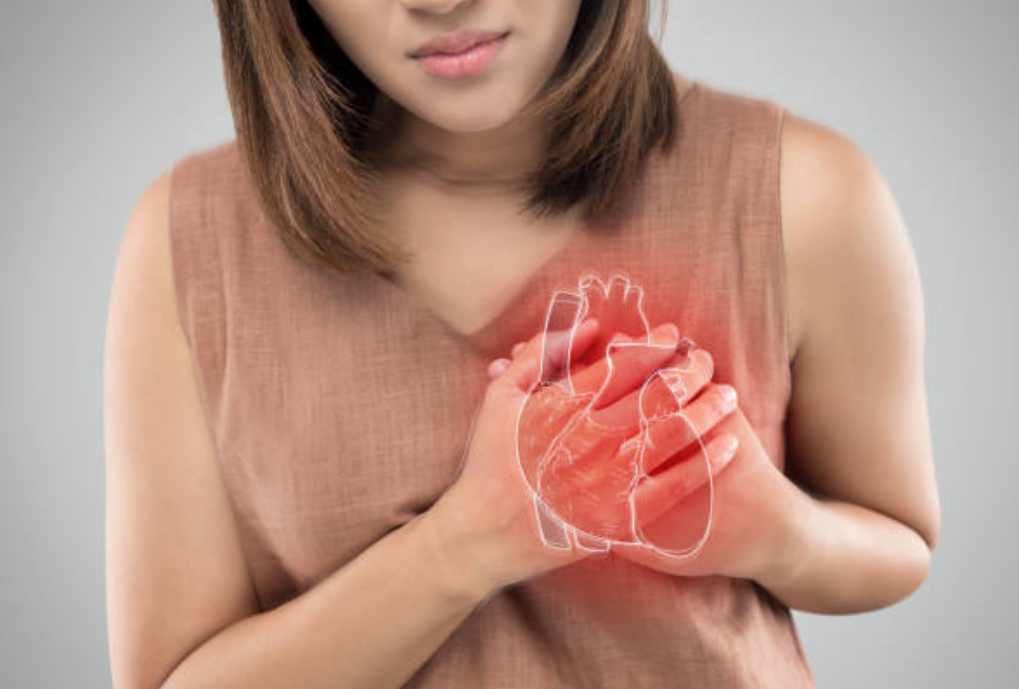Menopausal women at higher risk of heart attacks
Philippine Heart Association calls for vigilance
A former official of the Philippine Heart Association (PHA) Council on Women's Cardiovascular stated that heart attacks, especially in women, typically occur during the menopausal stage.

"The age of 48, from the time they start menopause, already poses a risk for women to develop what we call myocardial infarction or heart attack," said PHA Council on Women's Cardiovascular former chairperson Dr. Aileen Cynthia De Lara in Filipino during an interview with TeleRadyo Serbisyo on Tuesday, March 5.
However, she emphasized that while age plays a significant role, other risk factors must also be considered to assess the likelihood of experiencing a heart attack.
Meanwhile, when asked about the relationship between menopause and heart attack, De Lara said, "Women are protected by estrogen because it usually protects women against cardiovascular conditions, hormonal effects, or cholesterol."
She added that when women are not yet menopausal, their cholesterol levels are often good, their sugar levels are not too high, and they are not yet gaining weight.
"But once you have the withdrawal of estrogen, dyan na nagsisimula ang lahat, tumataas na ang cholesterol at lalaki ka na, and that poses a risk for a heart attack to happen (But once you have the withdrawal of estrogen, that's when everything starts, cholesterol levels rise, and you become at risk, and that poses a risk for a heart attack to happen)," De Lara highlighted.
Moreover, drawing from data, the expert noted a disparity in early heart problems between men and women, underscoring the importance of recognizing and addressing symptoms promptly.
Men have more early heart problems compared to women
“Many men experience heart attacks because men have more early heart problems compared to women. As I've said, it's because of the estrogen that protects women," De Lara added.
"Usually sa lalaki may chest pain, sumasakit ang dibdib. Sa babae ay hindi ganun, minsan madaling mapagod, sumakit ang likod, ang tyan at nanghihina (Usually, men have chest pain, their chest hurts. It's not like that for women; sometimes they easily get tired, their back hurts, their stomach hurts, and they feel weak)," she explained.
De Lara stressed the significance of recognizing these subtle signs as indicators of a heart condition.
"Kaya dapat ma-educate ang mga babae na hindi chest pain, hindi chest heaviness ang nararamdaman, 'ung pagkapagod lang o parang nanghihina (So, women should be educated that it's not just chest pain or chest heaviness that they feel, but also fatigue or weakness)," De Lara said.
"Minsan 'yung iba akala dahil sa trabaho lang kaya they would feel that, but these are actually warning signs na maybe ikaw ay inaatake na sa puso (Some may think it's just because of work that they feel that way, but these are actually warning signs that you might be having a heart attack)," she noted.
De Lara pointed out that there is a significant difference between women and men when it comes to the symptoms of a heart attack.
Moreover, the expert also mentioned that heart attacks often occur in the early morning because that's when all of a person's hormones rise.
De Lara clarified that not only heart attacks but strokes also pose a risk during the early morning.
"Pero anytime pwede kang atakihin, pero mas maraming inaatake during that period (But you can be attacked anytime, but more attacks happen during that period)," she said.
Regarding this, highlighting the importance of early detection, De Lara emphasized that cardiovascular disease is preventable through routine check-ups, laboratory tests, blood pressure monitoring, and weight management.
"Importante ito dahil minsan akala natin malakas tayo, wala tayong nararamdaman, lalo na sa mga babae, so hindi natin pinapansin noh (This is important because sometimes we think we're strong, we don't feel anything, especially women, so we tend to ignore it)," she said.
She urged individuals to seek medical attention promptly to prevent worsening conditions and potential fatalities.
The PHA's warning underscores the critical need for heightened awareness, proactive healthcare, and early intervention to combat the growing threat of heart attacks, particularly among women during the menopausal stage.